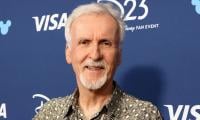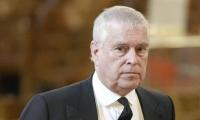Spain urges responsibility as parties mark ending of virus curfew; London launches tourism campaign
London Mayor Sadiq Khan launched a campaign on Monday to bring tourists back to the British capital, ahead of a planned easing of government coronavirus restrictions across England.
The £6 million ($8.4 million, 7 million euro) campaign by Khan’s office with the capital’s tourism and transport bodies will look to drive domestic tourism to hospitality, culture, nightlife and retail venues in the city.
The plans are designed to boost the sectors, which have been badly hit by months of closures and lockdown curbs during the pandemic. Prime Minister Boris Johnson is expected on Monday to confirm the next stage of his government’s roadmap out of lockdown from next week, including a return to indoors mixing, and the reopening of cinemas and theatres.
Khan, who on Saturday was re-elected for a second term as mayor, called the initiative "the biggest domestic tourism campaign London has ever seen". "This is about getting the message out to Londoners and people across the country that our capital stands ready to entertain, inspire and enthral once again," he said.
The "Let’s Do London" campaign will look to target day-trippers and overnight visitors to the capital from across the UK, given ongoing restrictions on international travel. Analysis by Britain’s tourism sector has shown consumer spending in central London by overseas tourists was £7.4 billion lower throughout 2020.
Domestic tourists will have spent £3.5 billion less, it added. "Our new campaign is bringing together many of the capital’s leading organisations and venues to offer an unparallelled experience for anyone visiting the capital throughout the year," Khan said at the city’s riverside Globe Theatre.
The year of events will begin with the unveiling of public art installations by influential British artist David Hockney and London designer Yinka Ilori. Road crossings and streets in the West End theatre district -- will also be transformed as part of an initiative involving Royal Academy artists.
London’s V&A museum will showcase an exhibition on Lewis Carroll’s children’s book "Alice in Wonderland" while Shakespeare’s Globe will stage a series of "Midnight Matinees". In June, the British capital plans to see the return of sporting events including the Wimbledon tennis championships. London will also host eight games in the Euro 2020 football tournament, including semi-finals and the final.
Meanwhile, Spain’s government called on Monday for "responsibility", insisting health restrictions were still in place after weekend images showed people celebrating the state of emergency’s end without masks or social distancing.
"The end of the state of emergency does not mean the end of restrictions. Far from it. The virus threat still exists," Justice Minister Juan Carlos Campo wrote in an opinion piece in El Pais daily. "That’s why the authorities will continue to take action and the public must keep on behaving responsibly."
After more than six months of curfews and a ban on travel between Spain’s 17 regions under a state of emergency which was imposed in late October, Spaniards were afforded new freedoms when the measure expired in the early hours of Sunday.
But the images of hundreds of people joyfully celebrating in the streets of Madrid, Barcelona and other Spanish cities without masks or social distancing made Monday’s front pages and sparked much debate online.
In a related development, An expert committee set up by Norway’s government to evaluate AstraZeneca’s and Johnson & Johnson’s Covid-19 vaccines said on Monday that both should be abandoned over risks of rare but serious side effects.
In order to avoid a slowdown of the vaccine rollout the committee recommended that the two jabs should be made available for people on a voluntary basis.
The committee’s head Lars Vorland said they did "not recommend the use of adenoviral vector vaccines in the national immunisation programme", as he handed in their report. "This is of course because of the serious side effects" observed in a small proportion of people who have been injected with these vaccines, Vorland added. Health Minister Bent Hoie has not yet made the government’s position on the use of the vaccines known.
From the 134,000 injections of AstraZeneca’s vaccine administered in Norway up until mid-March, five cases of severe thrombosis -- three of them fatal -- were reported in relatively young and previously healthy people. Another vaccine recipient died of a brain haemorrhage. Norway suspended AstraZeneca’s vaccine on March 11 while its rare but potentially serious side effects were studied in more detail.
-
 Wayne Brady On How Decision About His Sexuality Has Made Him A Better Parent
Wayne Brady On How Decision About His Sexuality Has Made Him A Better Parent -
 Andrew Mountbatten Windsor, Sarah Ferguson To Jump At 'comeback' Chance
Andrew Mountbatten Windsor, Sarah Ferguson To Jump At 'comeback' Chance -
 Prince William, Kate Middleton Have Reset Their 'love' After Cancer
Prince William, Kate Middleton Have Reset Their 'love' After Cancer -
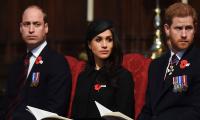 Prince William, Meghan Markle Make Parallel PR Moves
Prince William, Meghan Markle Make Parallel PR Moves -
 Spencer Pratt Recalls Meeting Ryan Gosling Before Fame
Spencer Pratt Recalls Meeting Ryan Gosling Before Fame -
 Meghan Markle's As Ever Facing Branding Problems?
Meghan Markle's As Ever Facing Branding Problems? -
 Kate Middleton Is More Relaxed In 'Wellington Boots Than Diamond Tiara'
Kate Middleton Is More Relaxed In 'Wellington Boots Than Diamond Tiara' -
 Gaten Matarazzo Addresses Important Fans Query About 'Stranger Things'
Gaten Matarazzo Addresses Important Fans Query About 'Stranger Things' -
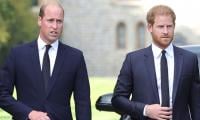 Prince William's Latest Move Reveals Rift Is Strong With Prince Harry
Prince William's Latest Move Reveals Rift Is Strong With Prince Harry -
 Princess Eugenie Becomes Second Royal After Meghan To Feature In Viral Trend
Princess Eugenie Becomes Second Royal After Meghan To Feature In Viral Trend -
 Carol Burnett Sings Praises Of Late Jimmy Stewart: 'He Had THIS'
Carol Burnett Sings Praises Of Late Jimmy Stewart: 'He Had THIS' -
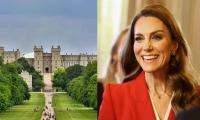 Kate Middleton Dashes Through Rain At Windsor Castle
Kate Middleton Dashes Through Rain At Windsor Castle -
 Dave Filoni, Who Oversaw Pedro Pascal's 'The Mandalorian' Named President Of 'Star Wars' Studio Lucasfilm
Dave Filoni, Who Oversaw Pedro Pascal's 'The Mandalorian' Named President Of 'Star Wars' Studio Lucasfilm -
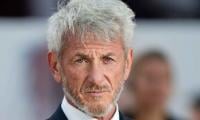 Is Sean Penn Dating A Guy?
Is Sean Penn Dating A Guy? -
 Sebastian Stan's Godmother Gives Him New Title
Sebastian Stan's Godmother Gives Him New Title -
 Alison Arngrim Reflects On 'Little House On The Prairie' Audition For THIS Reason
Alison Arngrim Reflects On 'Little House On The Prairie' Audition For THIS Reason

